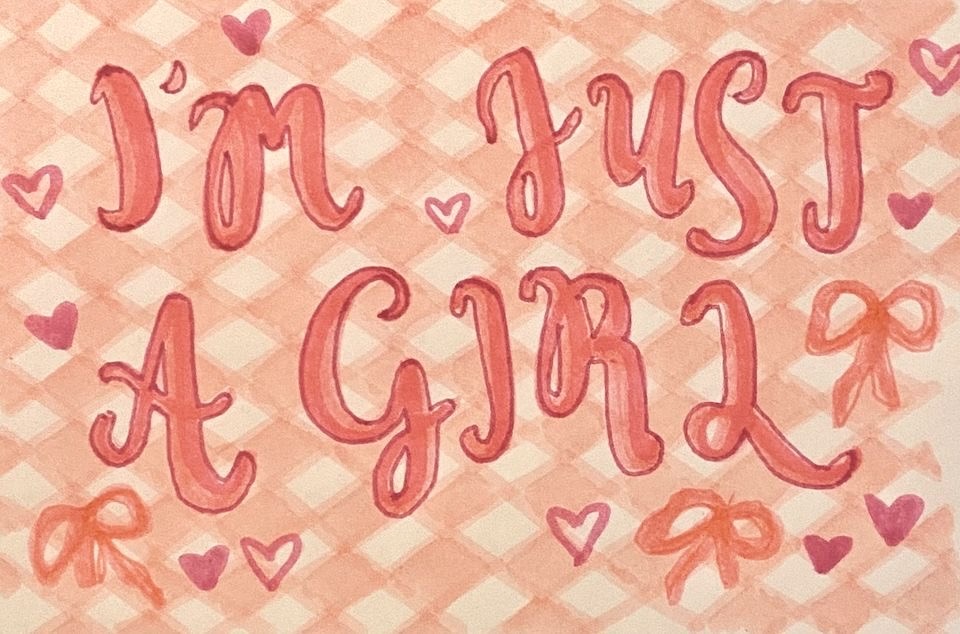The rise in popularity of the phrase “I’m just a girl” sounds all too similar to my fifth-grade school counselor’s response to me being borderline harassed by boys in my grade: “boys will be boys.”
“Boys will be boys” is a well-known term for excusing the inappropriate behavior of young boys because that’s just the way they are, you better accept it and there’s nothing you can do. The phrase perpetuates a culture where boys can get away with unacceptable behavior simply because they’re male.
Even though “I’m just a girl” may have different connotations, women are now saying it to excuse themselves of accountability.
While the trending phrase is intended to be lighthearted, and can be used in a lighthearted way, at some point the overuse of it becomes an issue.
If you are not familiar, the sentiment is used in response to an inconvenience or issue that a woman is experiencing, basically arguing that they shouldn’t have to deal with it or it is unfair based on being a woman.
A popularized example of the phrase is car crashes. Picture this: an Instagram reel shows up on your feed with a picture of a nasty collision with the teary-eyed mouse meme next to it, captioned “I’m literally just a girl.”
Maybe this isn’t the time to make a reel joking about your car crash. Maybe you should go call your insurance company.
The idea that women don’t need to take accountability for their actions just because they’re women makes it just as bad as the male counterpart. Women are not exempt from making poor choices or negatively affecting others.
Claiming anything women do or say is justified simply because a woman did or said it isn’t true feminism. True feminism seeks equality, which includes accountability in our actions in the same way we want men to be held accountable.
The phrase also takes away from the seriousness and intelligence of women. By saying it, we are excluding ourselves from being taken seriously, justifying irresponsibility and perpetuating misogyny and sexist tropes. It denigrates women by explaining away mistakes and wrongdoings with the turn of phrase.
The fact that the saying is really only said about oneself may be even worse than having it said toward someone else. Using it to describe yourself is like shooting your credibility in the foot.
I’ll admit I have been a culprit in using the phrase before when I’ve been angry or inconvenienced. Like when I was hungry and lashed out at my ex-boyfriend, followed by saying “I’m sorry, I’m hungry and I’m just a girl,” or using it after getting a bad grade on an exam.
I was basically saying I shouldn’t have to struggle because “I’m just a girl.”
It’s as if I’m taking away from my womanhood and retreating into a world where women are helpless creatures. Even using the word “girl” is deflective of womanhood, which may be reflecting a reluctance to shift into adulthood. We are not “just” girls, but young women with value and intelligence.
Degrading ourselves to be seen as delicate damsels in distress is counteractive to improving the equality of women in the eyes of media and culture.
Think twice before using such generalized terms around sex. Think about how they reflect on yourself and what connotations they bring with them.



















